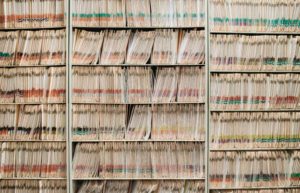At Allen & Allen, a critical component of every personal injury case we handle is the need to prove to the judge or jury the full extent of our client’s harms and losses.
This almost always involves the use of medical evidence. I find that many clients are surprised to learn that medical records from the hospital or doctor’s office often are not always admissible as evidence in every court.

Medical records as hearsay?
In Virginia, the information which can be presented at trial is governed by the Rules of Evidence. One of the better-known rules of evidence is the rule against hearsay. Generally speaking, one person cannot repeat in court another person’s out-of-court statement. The rule against hearsay even includes documents; writings made out of court generally cannot be offered into evidence as proof of the statements made therein. This means that in most cases, medical records cannot be used at trial to prove the extent of the plaintiff’s injuries.

When is hearsay admissible in court?
There are, however, many exceptions to the hearsay rule. One is the “business records exception.” Records that are made as routine entries in the regular course of business can be used at trial. Given the proper foundation, medical records can be established as business records and admitted into evidence.
But there is an important “exception to the exception.” The Supreme Court has held that even if medical records are admitted into evidence under the business records exception, any opinions contained in those records still must be excluded.
How do lawyers prove the extent of their client’s injuries?
The key part of medical evidence in a personal injury case is typically the doctor’s diagnosis of the condition, and the conclusion that the condition was caused by the defendant’s negligence. Because these matters constitute the doctor’s opinion, which is excluded under the Neeley v. Johnson case, medical records are rarely offered into evidence in Virginia circuit courts.
Instead, we present on behalf of our clients the trial or deposition testimony of doctors or other medical experts, in order to prove the full extent of the harms and losses.

There is a different exception to the hearsay rule that allows for the introduction of medical records only in Virginia general district courts (as opposed to circuit courts). By statute, medical records can be introduced in general district court if they are accompanied by sworn statements establishing their authenticity.
This statute also permits the use of a report by a treating healthcare provider in general district court. The use of this procedure can be strategically beneficial to a plaintiff in cases where medical testimony in court is not practicable.
The importance to the plaintiff of proving in court the full extent of his or her injuries and damages cannot be overstated. At Allen & Allen, we have extensive knowledge of the various evidentiary rules that govern this proof, in order to present the best case possible for each client.
If you have been injured due to the negligence of another, reach out to Allen & Allen for a free consultation, and to discuss the unique details of your case. Call today at 866-388-1307.




